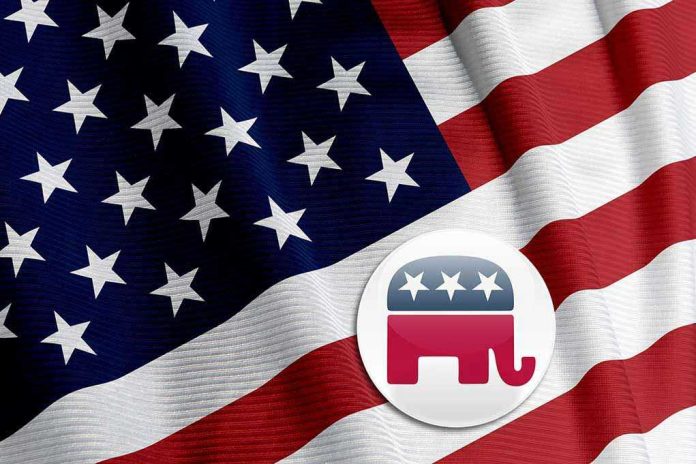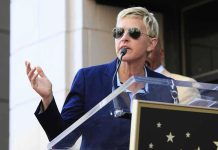
Two trailblazing women stand poised to redefine Virginia’s political legacy, but only one will reveal if the MAGA brand still motivates voters in America’s battleground states.
Story Snapshot
- First-ever Virginia governor’s race with two female major party nominees
- Trump-aligned Republican struggles for traction against moderate Democrat
- Fundraising gap puts Republican campaign at a disadvantage
- The contest is a crucial test of Trump’s influence in swing states
Historic Faceoff: Virginia’s Gubernatorial Milestone
Abigail Spanberger and Winsome Earle-Sears have made history as the first women to secure major party nominations in Virginia’s governor’s race. Spanberger, a moderate Democrat and former U.S. Representative, faces Earle-Sears, the incumbent Lieutenant Governor and first woman of color to hold statewide office in Virginia. Their unopposed nominations set the stage for a direct contest, drawing national attention to a state that often predicts future political trends. The magnitude of this milestone resonates beyond state borders, promising to energize women and minority voters across the country.
The race is more than a historic footnote; it’s a proxy battle for the future of American politics. Earle-Sears, closely associated with the MAGA movement and Donald Trump, seeks to break the recent Democratic trend in a state where Kamala Harris won by 5.8% in 2024. Spanberger, meanwhile, leverages her bipartisan credentials and national security background, positioning herself as a pragmatic leader for a politically divided state. The outcome will gauge the durability of Trumpism and the Democratic Party’s hold on suburban America.
Spanberger’s Fundraising Edge and Earle-Sears’ MAGA Dilemma
Campaign finance has become a central storyline. As of April 2025, Spanberger’s fundraising advantage exceeds $7 million, fueling robust advertising and grassroots operations. Earle-Sears, despite securing endorsements from 81 sheriffs and maintaining strong law-and-order messaging, is hampered by limited resources and the lack of a formal Trump endorsement. Trump’s ambiguous support—he “would” endorse but hasn’t—leaves Earle-Sears straddling the line between energizing MAGA loyalists and courting skeptical suburban moderates. The financial disparity raises questions about the GOP’s ability to compete statewide, even as Earle-Sears touts her immigrant story and conservative values at public events.
Virginia’s political terrain is a microcosm of national polarization. Urban and suburban regions lean Democratic, while rural areas remain deeply Republican. The state’s tradition of electing governors from the party opposite the sitting president was only broken once since 1977, yet current dynamics suggest old rules may no longer apply. The 2025 race, occurring during a hyper-partisan national climate, is a high-stakes test for both parties, with outside spending and voter mobilization efforts reaching unprecedented levels.
Debate Clashes and the Politics of Identity
On August 21, 2025, Spanberger and Earle-Sears sparred in their lone debate, clashing over education, gender identity, and the economy. The event underscored the ideological distance between the candidates, as Earle-Sears highlighted her law enforcement endorsements and immigrant background while Spanberger emphasized her bipartisan record and commitment to public education. The debate drew statewide attention, amplifying cultural and economic tensions that mirror national divisions. Both campaigns quickly leveraged the debate to energize their bases and refine their messaging.
Controversy erupted in August when a racist sign targeting Earle-Sears appeared, prompting condemnation from leaders across Virginia. The incident exposed persistent racial fault lines and injected a sobering reminder of the stakes for communities of color. Earle-Sears used the moment to reaffirm her immigrant journey and conservative principles, while Spanberger condemned the act and called for unity. Such episodes underscore the intersection of identity, representation, and policy in a race that is as much about symbolism as substance.
Election Showdown: National Implications and Open Questions
With early voting underway since September 19, 2025, both campaigns are executing aggressive turnout strategies in key suburban counties. The race’s outcome will reverberate nationally: a Spanberger victory could cement Democratic dominance in Virginia and signal trouble for Republicans ahead of the 2026 midterms; an Earle-Sears upset would embolden Trump-aligned conservatives and challenge assumptions about MAGA’s limits in swing states. The contest’s impact on economic policy, education, and social issues will be felt for years, shaping party strategy and voter engagement across the country.
Political analysts, media outlets, and academic commentators agree that Virginia’s off-year gubernatorial elections routinely forecast broader national trends. This historic showdown—marked by fundraising gaps, identity politics, and the shadow of Trump—offers no easy answers. As Election Day nears, the nation watches to see whether Virginia’s voters will embrace the pragmatic moderate or the unapologetic MAGA conservative, and in doing so, reveal the evolving soul of American politics.
Sources:
2025 Virginia gubernatorial election — Wikipedia
Debate and campaign coverage — WTVR







